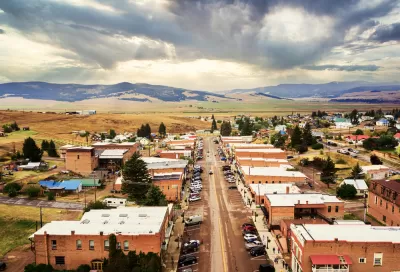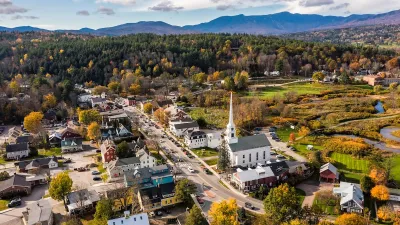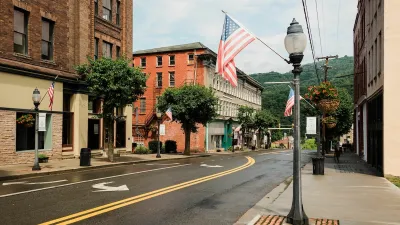Learn more about a new book that provides some overdue attention to public governance and administration in small towns and rural communities.

Local Government Administration in Small Town America is a new book that devotes some overdue scholarly attention to the governance and administration of public programs in small towns and rural communities in the U.S. Edited By James C. Clinger, Donna M. Handley, and Wendy L. Eaton, this volume analyzes some of the unique challenges rural communities face, as well as the policy tools that their governments employ to address them. The book explores ways that small town governments collaborate with one another, the state, and the federal government, and examines how local government officials use knowledge of people and place to improve policy performance. The book consists of the following 21 chapters:
- The Network of Interests, Institutions, and Individual Interactions in Small Town Governance
- The Origin and Persistence of American County Boundaries: Courthouse Competition and the Road to Reapportionment
- Placemaking as an Economic Development Strategy for Rural Governments
- The Mechanics of Democracy: The Critical Role of Local Governments in Supporting Election Operations
- Public Budgeting in Small Local Governments
- Using Financial Statements to Improve Fiscal Strength and Make Policy Decisions
- Small Town Revenues for Big Time Public Services
- Rural Communities and Access to Health Care
- Rural Parks and Recreation: Understanding and Meeting the Needs
- Human Resources: Recruitment and Retention in Small Cities and Towns
- Gateway Towns: Loving our Rural Communities to Death
- Nonprofit Organizations and Arts Education in a Rural Community
- Guthrie KY and Civic Engagement: How Small Groups of People Make a Difference
- The Where of Small-Town Governance: Charting the Path from Technocracy to Democracy
- Broadband Availability and Adoption in Rural America
- Public Safety in Rural and Small Town America
- Challenges in Rural Emergency Management
- Enhancing Rural Capacity and Public Service Values through Intergovernmental and Intersectoral Collaboration
- Solution or Trouble? Privatization and Rural Governments
- The Role of Federalism in the Attainment of Collaborative Sustainability Outcomes in Small Communities
- Interlocal Economic Development Collaboration in Rural America: A Case of West Texas
These chapters offer case studies and strategies for students and practitioners in public administration to use in a small town context, while also considering a community’s distinctive social and political culture, which determines how local political leaders and government practitioners might respond to demands and challenges they face.
FULL STORY: Local Government Administration in Small Town America

Study: Maui’s Plan to Convert Vacation Rentals to Long-Term Housing Could Cause Nearly $1 Billion Economic Loss
The plan would reduce visitor accommodation by 25,% resulting in 1,900 jobs lost.

North Texas Transit Leaders Tout Benefits of TOD for Growing Region
At a summit focused on transit-oriented development, policymakers discussed how North Texas’ expanded light rail system can serve as a tool for economic growth.

Why Should We Subsidize Public Transportation?
Many public transit agencies face financial stress due to rising costs, declining fare revenue, and declining subsidies. Transit advocates must provide a strong business case for increasing public transit funding.

How to Make US Trains Faster
Changes to boarding platforms and a switch to electric trains could improve U.S. passenger rail service without the added cost of high-speed rail.

Columbia’s Revitalized ‘Loop’ Is a Hub for Local Entrepreneurs
A focus on small businesses is helping a commercial corridor in Columbia, Missouri thrive.

Invasive Insect Threatens Minnesota’s Ash Forests
The Emerald Ash Borer is a rapidly spreading invasive pest threatening Minnesota’s ash trees, and homeowners are encouraged to plant diverse replacement species, avoid moving ash firewood, and monitor for signs of infestation.
Urban Design for Planners 1: Software Tools
This six-course series explores essential urban design concepts using open source software and equips planners with the tools they need to participate fully in the urban design process.
Planning for Universal Design
Learn the tools for implementing Universal Design in planning regulations.
Ascent Environmental
Borough of Carlisle
Institute for Housing and Urban Development Studies (IHS)
City of Grandview
Harvard GSD Executive Education
Toledo-Lucas County Plan Commissions
Salt Lake City
NYU Wagner Graduate School of Public Service





























